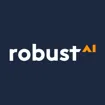GenAI Engineer – Retrieval-Augmented Generation (RAG)
Offer summary
Qualifications:
Masters Degree in a relevant field., 3+ years of experience in machine learning or NLP roles, focusing on LLMs and GenAI., Strong proficiency in Python and deep learning frameworks like PyTorch or TensorFlow., Experience with healthcare data and compliance (HIPAA/GDPR)..Key responsibilities:
- Design and implement RAG architectures using various LLMs.
- Build and maintain retrieval pipelines for health data.
- Integrate RAG outputs into user-facing applications for reliable responses.
- Collaborate with product and data science teams to enhance model performance.
Job description
all.health is at the forefront of revolutionizing healthcare for millions of patients worldwide. Combining more than 20 years of proprietary wearable technology with clinically relevant signals, all.health connects patients and physicians like never before with continuous, data-driven dialogue. This unique position of daily directed guidance stands to redefine primary care while helping people live happier, healthier, and longer.
Education
About the Role
Responsibilities
Requirements
Required profile
Experience
Industry :
Health, Sport, Wellness & Fitness
Spoken language(s):
English
Check out the description to know which languages are mandatory. Other Skills
- Problem Solving
Related jobs
release 950

release 950
30+ days ago
FullThrottle Labs
- From: Vatican City (Full Remote)
Social Media Intern/Co-op

Social Media Intern/Co-op
30+ days ago
Power Recruitment Inc
- From: India (Full Remote)
- Full time
Software Developer - Junior

Software Developer - Junior
20 days ago
SynergisticIT
- From: California (USA) (Full Remote)
- Full time
Java (Programming Language)Spring AOPSoftware Development
Outpatient Complex Audit Specialist/Full Time/Remote

Outpatient Complex Audit Specialist/Full Time/Remote
27 days ago
Henry Ford Health
- From: Michigan (USA) (Full Remote)
- Full time
Coding TheoryICD 503Cppunit
Solutions Engineer

Solutions Engineer
29 days ago
Robust.AI
- From: California (USA) (Full Remote)
- Full time
CAD StandardsAnalytics
